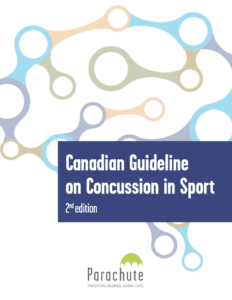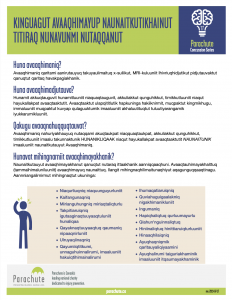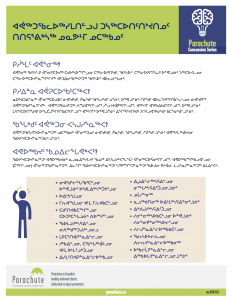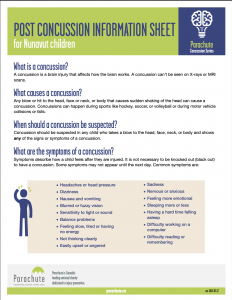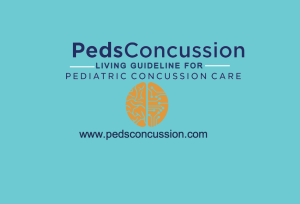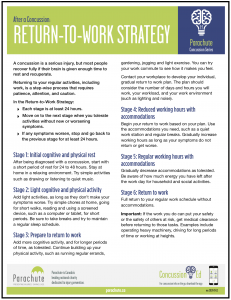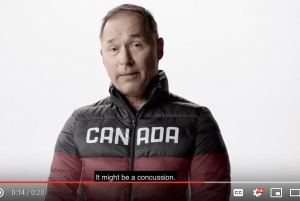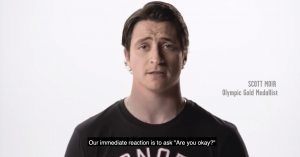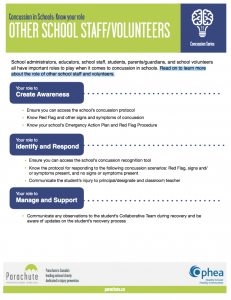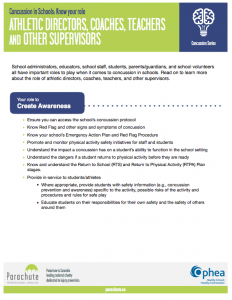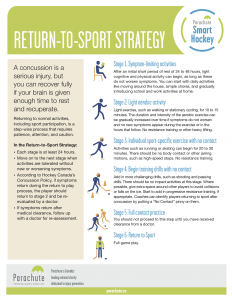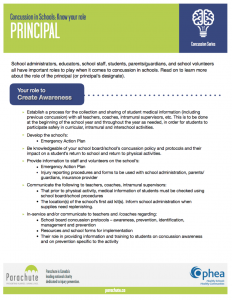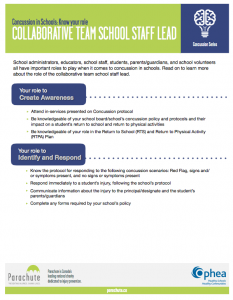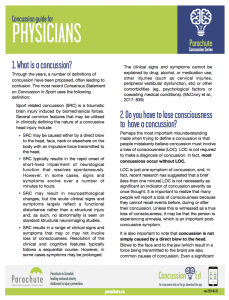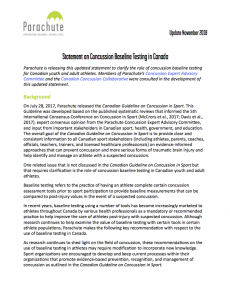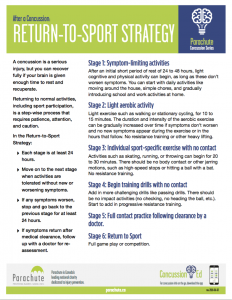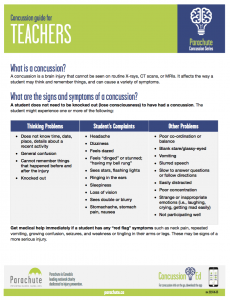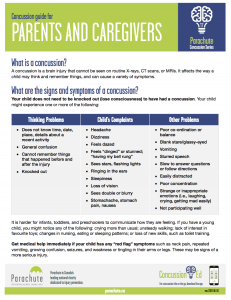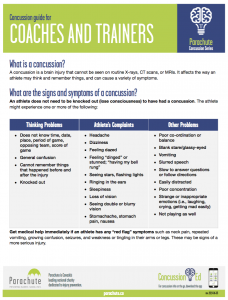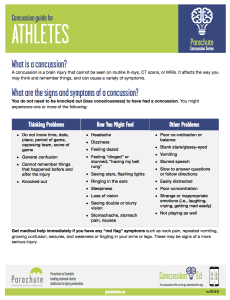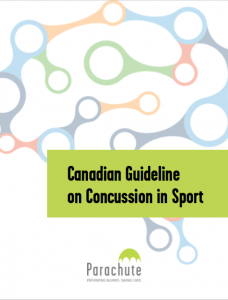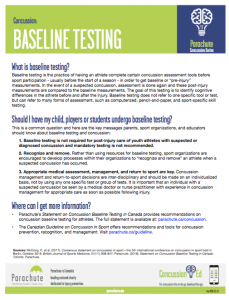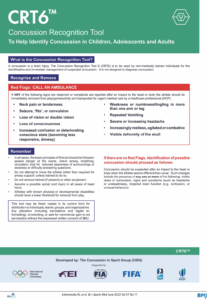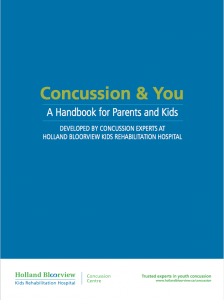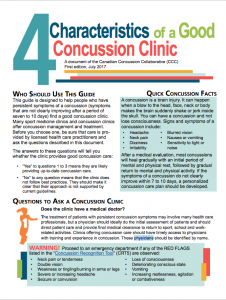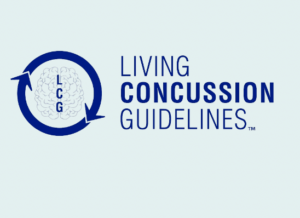All resources
-
Falls Decision Rule
his is a clinical decision rule derived to safely exclude clinically important intracranial bleeding in older adults who present to the emergency department after a fall, without the need for a computed tomography (CT) scan of the head.
-
Canadian CT Head Rule
his is a highly sensitive decision rule for use of computed tomography (CT) for patients with minor head injury.
-
BC Concussion/Mild Traumatic Brain Injury Guideline
This provincial guideline was published by the Guidelines and Protocols and Advisory Committee, a joint committee between the Doctors of BC and the BC Ministry of Health. The guideline provides recommendations for the primary care assessment, diagnosis, and management of concussion/mild traumatic brain injury (mTBI) for patients of all ages.
-
ACRM Diagnostic Criteria for Mild Traumatic Brain Injury
The Mild Traumatic Brain Injury Task Force of the American Congress of Rehabilitation Medicine (ACRM) Brain Injury Special Interest Group developed new diagnostic criteria for mild TBI through an evidence review and expert consensus process.
-
Rowan’s Law: Information for health care providers
On this page of Government of Ontario website, learn about certain provisions under Rowan’s Law (Concussion Safety), 2018, that came into effect on January 1, 2022.
-
Concussion in para sport: the first position statement of the Concussion in Para Sport (CIPS) Group
This statement from the Concussion in Para Sport Group offers considerations for assessment, treatment and return to play after concussion in the para athlete.
-
CPS Position Statement: Sport-related concussion and bodychecking in children and youth: Evaluation, management, and policy implications
This statement from the Canadian Paediatric Society summarizes and highlights recent evidence and current best practice guidelines for managing concussion in children and youth, and re-examines the relationship between bodychecking in hockey and injury rates.
-
Canadian Guideline on Concussion in Sport, 2nd edition webinar (2024)
The Canadian Guideline on Concussion in Sport, 2nd edition was published in March 2024 with updated recommendations for the prevention, recognition and management of concussions. This webinar will provide an overview of key changes to recommendations and highlight resources available from Parachute and its partners for concussion policy and protocol development, training and education/awareness.
Presenter: Stephanie Cowle, Director, Knowledge Translation, Parachute
-
Canadian Guideline on Concussion in Sport, 2nd edition
-
Abused & Brain Injured Toolkit
This toolkit provides information to educate about the impact of brain injury in women survivors of intimate partner violence, help identify survivors with possible brain injury, and help service providers support survivors with TBI.
-
Online Concussion Course – University of Calgary, MOOC
This massive open online course (MOOC) demystifies concussion and explains how everyone can play a role in the prevention, identification, and management of this type of traumatic brain injury. The course also describes the revision and implementation of a concussion management protocol adapted to different environments.
-
Concussion Policy and Protocol Implementation Roles and Responsibilities Matrix Templates [word doc]
-
Concussion Communication Tool [word doc]
-
Moderator Guide: Concussion Recognition Tool 5 (CRT5) Scenarios [word doc]
-
Concussion Recognition Tool 5: Scenarios
-
Changing perceptions around the importance of concussion education [word doc]
-
Changing perceptions around the importance of concussion education
-
Concussion Protocol Summary Template [word doc]
-
Improving Awareness of Your Organization’s Concussion Protocol: Strategies Checklist [word doc]
-
Concussion Policy Development in Canadian Sport: A checklist for national sport organizations
Developed in collaboration with the Sport Information Resource Centre (SIRC), this resource will help you understand what components to include in a concussion policy to meet Sport Canada’s requirements.
-
Concussion Awareness Week Toolkit
This toolkit was developed by the Federal-Provincial/Territorial Working Group on Concussions in Sport to support jurisdictions across Canada to implement activities during Concussion Awareness Week.
-
Post Concussion Information Sheet for Nunavut Children (Inuinnaqtun)
-
Post Concussion Information Sheet for Nunavut Children (Inuktitut)
-
Post Concussion Information Sheet for Nunavut Children (English)
-
Concussion Awareness Training Tool (CATT) for Women’s Support Workers
The Concussion Awareness Training Tool (CATT) is a program designed to provide people who work with survivors of intimate partner violence with the information they need to take an evidence-based approach in responding to and managing concussion.
-
Living Guideline for Pediatric Concussion
-
Concussion Awareness Training Tool (CATT) for Medical Professionals
CATT (Concussion Awareness Training Tool) Medical Professionals is designed to provide medical professionals with the information they need to provide evidence-based care for their patients who have sustained a concussion. Accredited by UBC Continuing Professional Development, Faculty of Medicine. This course is accredited for MOC Section 3 credits
-
Return-to-Work Strategy (2024)
-
The Youth Concussion Awareness Network (You-CAN) protocol for a cluster randomized trial
This study published in February 2020 by BMC Public Health has Parachute President and CEO Pamela Fuselli among its co-authors. The Youth Concussion Awareness Network (You-CAN) is a school-based peer-led program designed to increase high school students’ intent to report a concussion, and provide social support to a peer. This study aims to investigate whether participation in You-CAN, a program grounded in service learning principles, impacts concussion knowledge, attitudes, intent to report a suspected concussion to an adult, and intent to provide social support to a peer. Secondary aims include assessing the implementation fidelity and acceptability of the intervention.
-
Check For Concussion – Steve Podborski
-
Check for Concussion – Scott Moir
-
Check For Concussion PSA – English
-
Concussion Ed app
-
Know your role: Other staff/volunteers
-
Know your role: Athletic directors, coaches, teachers and other supervisors
-
Wrestling Return-to-Sport Strategy
-
Water Polo Return-to-Sport Strategy
-
Volleyball Return-to-Sport Strategy
-
Soccer Return-to-Sport Strategy
-
Ski Jumping Return-to-Sport Strategy
-
Sailing Return-to-Sport Strategy
-
Rugby Return-to-Sport Strategy
-
Nordic Return-to-Sport Strategy
-
Judo Return-to-Sport Strategy
-
Hockey Return-to-Sport Strategy (2025)
-
Freestyle Ski Return-to-Sport Strategy
-
Field Hockey Return-to-Sport Strategy
-
Equestrian Return-to-Sport Strategy
-
Curling Return-to-Sport Strategy
-
Cross-country Ski Return-to-Sport Strategy
-
Canoe and Kayak Return-to-Sport Strategy
-
Badminton Return-to-Sport Strategy
-
Artistic Gymnastics Return-to-Sport Strategy
-
Alpine Ski Return-to-Sport Strategy
-
Canadian harmonized sport concussion protocol checklist
A tool to help you ensure your concussion protocol aligns with the Canadian Guideline on Concussion in Sport.
39.99 KB Word
-
Statement on Concussion Baseline Testing in Canada
-
Know your role: Principal
-
Know your role: Collaborative team school staff lead
-
The symptoms of a concussion
What are the symptoms of concussion? Find out by watching this video.
-
Concussion guide for physicians
-
Statement on Concussion Baseline Testing in Canada (2018)
-
Return-to-Sport Strategy (2024)
-
Return-to-School Strategy (2024)
A four-step approach for a gradual return to cognitive activities and the learning environment.
371.73 KB PDF/UA
-
Concussion guide for teachers (2024)
-
Concussion guide for parents and caregivers (2024)
-
Concussion guide for coaches and trainers (2024)
-
Concussion guide for athletes (2024)
-
Canadian Guideline on Concussion in Sport 2nd Edition 2024
-
Sport-specific return-to-sport strategy adaptation tool
This tool will help ensure your Return-to-Sport Strategy is tailored to include sport-specific activities that help athletes return to your sport after a concussion.
44.01 KB Word
-
Sample concussion awareness checklist
A sample tool to help school boards and schools plan the delivery of concussion information and resources to key stakeholders. Use the checklist to identify the key audiences in your school community, what information those audiences need to know based on their roles, and how and when each audience will receive that information.
78.45 KB Word
-
Sample internal email to staff: Student diagnosed with concussion
A sample email to send to school staff about accommodations for students returning to school following a concussion.
109.36 KB PDF
-
Sample school board concussion policy template
-
Concussion baseline testing fact sheet
-
Pre-season concussion education sheet
Have all stakeholders review and sign this education sheet, at the time of sport registration or before the beginning of each sports season, to confirm that all participants received key information about concussion.
29.83 KB Word
-
Medical clearance letter
Before returning to full contact practice and game play, each athlete must provide their coach with a standardized Medical Clearance Letter that specifies that a medical doctor or nurse practitioner has personally evaluated the patient and has cleared the athlete to return to sport.
27.78 KB Word
-
Medical assessment letter
A medical assessment letter should be provided to athletes diagnosed with a concussion, indicating a concussion has been diagnosed. Athletes that are determined to have not sustained a concussion must be provided with a Medical Assessment Letter indicating a concussion has not been diagnosed and the athlete can return to school, work and sport activities without restriction.
29.82 KB Word
-
Designer Chris Moorehead’s background on creating “Canada’s Concussion Leaders.”
-
Canada’s Concussion Leaders infographic
-
Pan-Canadian harmonized school concussion protocol template
This template provides an example of a concussion protocol that aligns with the Canadian Guideline on Concussion in Sport.
199.92 KB PDF
-
Canadian harmonized sport concussion protocol template
This template provides an example of a concussion protocol that aligns with the Canadian Guideline on Concussion in Sport, 2nd edition.
364.42 KB Word
-
Child Sport Concussion Assessment Tool 6 (Child SCAT6)
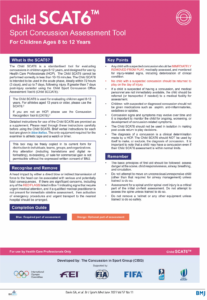
The Child SCAT6 is a standardized tool for evaluating concussions designed for use by licensed healthcare professionals. If you are not a healthcare professional, please use the Concussion Recognition Tool 6 (CRT6). The Child SCAT6 is to be used for evaluating children aged 8 to 12 years. For athletes aged 13 years and older, use the SCAT6.
-
Sport Concussion Assessment Tool 6 (SCAT6)
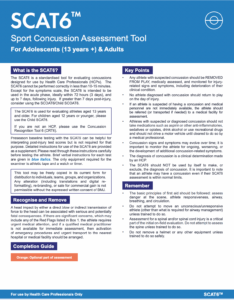
The SCAT6 is a standardized tool for evaluating concussions designed for use by licensed healthcare professionals. If you are not a healthcare professional, please use the Concussion Recognition Tool 6 (CRT6). The SCAT6 is to be used for evaluating athletes aged 13 years and older. For children aged 8 to 12 years, use the Child SCAT6.
-
Concussion Recognition Tool 6 (CRT6)
-
Rivermead post-concussion symptoms questionnaire
This questionnaire allows individuals to rate the severity of their symptoms compared with before the concussion incident.
-
Concussion & You handbook (2016)
-
4 Characteristics of a Good Concussion Clinic (2017)
-
Standards for post-concussion services and concussion clinics
-
Living Concussion Guidelines: Guideline for Concussion & Prolonged Symptoms for Adults 18 Years of Age or Older
-
Concussion Awareness Training Tool (CATT)
The Concussion Awareness Training Tool (CATT) is a series of free e-learning modules for different audiences: parents, coaches, athletes, educators, medical professionals, and those working with survivors of intimate partner violence.
-
NCCP Making Head Way Concussion e
Learning Series 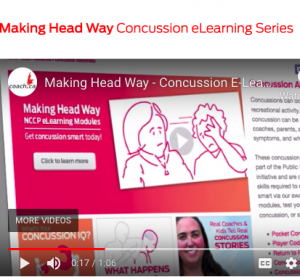
Designed to help you gain the knowledge and skills required to ensure the safety of your athletes, these National Coaching Certification Program (NCCP) Professional Development modules will make you concussion smart! Developed by the Coaching Association of Canada. Requires registration and takes 60 to 90 minutes to complete a module.
-
Concussion resources – Sport Information Resource Centre
The Sport Information Resource Centre has a collection of information on concussion.
-
Concussion Awareness Training Tool (CATT) for school professionals
The CATT is a program designed to provide school professionals and administrators with the information they need to take an evidence-based approach in responding to and managing concussion.
-
SCHOOLFirst
SCHOOLFirst is a tool that has been developed to help teachers and other school personnel be a Concussion Champion and support youth upon their return-to-school after a concussion.
-
6th Consensus Statement on Concussion in Sport
Consensus statement on concussion in sport: the 6th International Conference on Concussion in Sport – Amsterdam, October 2022
